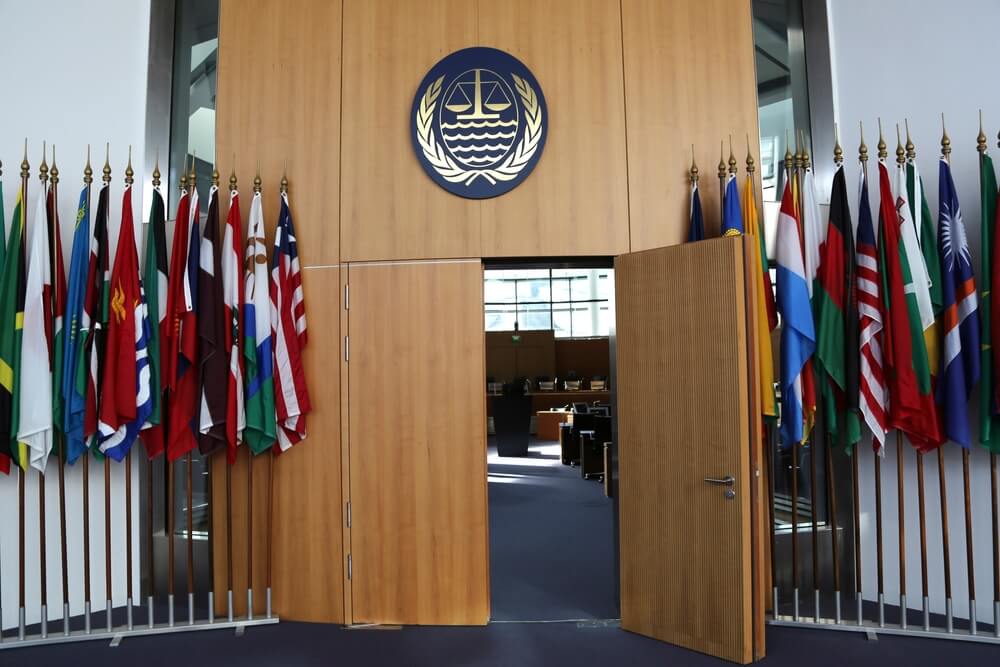The architecture of international justice – the rules, norms, and institutions that have guided efforts to hold accountable the perpetrators of grave crimes – was largely built upon the presumption that the world was moving toward greater respect for democracy and human rights.
To be sure, progress was not linear: there were steps sideways and backward.
But from the Nuremberg and Tokyo war crimes trials, which prosecuted German and Japanese perpetrators after World War II, to the adoption in 1998 of the Rome Statute, which established the International Criminal Court (ICC), the general trajectory was proceeding in the direction of accountability.
Despite their flaws and crimes, some of the world’s oldest and most powerful democracies helped lead the push for justice in the former Yugoslavia, Rwanda, and Sierra Leone.
But recent events have reversed this trend. Authoritarian leaders who scorn human rights have come to power in several democracies, including the United States.
Donald Trump’s election as US president in 2016, and his re-election in 2024, have been particularly concerning.
Already under Trump’s second administration, the US – whose leadership of the international justice system is as essential as it has been inconsistent – has gone so far as to impose sanctions on the ICC’s prosecutor, two deputy prosecutors, and six of its judges.
Pressure from authoritarian forces
The US is not the only democracy under pressure from authoritarian forces that fear any form of accountability.
According to news reports, even before the current war in Gaza, the then-director of Israel’s Mossad intelligence agency allegedly threatened the ICC’s then-prosecutor, Fatou Bensouda, as part of a years-long pressure campaign to prevent an investigation into alleged war crimes and crimes against humanity in Palestine.
In 2019, the Philippines withdrew from the ICC following the court’s investigation of then-President Rodrigo Duterte’s drug crackdown.
And earlier this year, proudly illiberal Hungary announced its intention to do the same, shortly after it refused to execute an ICC arrest warrant.
The global turn toward authoritarianism makes the world a less welcoming place for the independent judges
Of course, international justice is not only a concern for democracies. After all, Joseph Stalin was one of the Allied leaders who agreed to establish the International Military Tribunal that sat in Nuremberg after WWII.
As Robert Jackson, the US Supreme Court justice who served as the chief American prosecutor at Nuremberg, observed in his opening statement, the trial was “part of the great effort to make the peace more secure.”
The Rome Statute, whose signatories include governments of all stripes, similarly recognizes that “grave crimes threaten the peace, security and well-being of the world.”
Even so, the global turn toward authoritarianism makes the world a less welcoming place for the independent judges and lawyers trying to bring justice to victims of genocide, war crimes, crimes against humanity, and aggression.
When elected heads of state seek to expand their power beyond traditional bounds, when governments remove and criminally charge the leadership of bar associations, when judges in national courts are threatened for acting as a bulwark against executive overreach, the rule of law suffers – to the detriment of everyone.
Expressions of courage
The question now is whether the project of holding high-level perpetrators to account will survive at all.
Amid the challenges and disappointments, I find hope in the many expressions of courage, resistance, and faith in the law as an instrument for pushing back against arrogations of power.
Advancing the rule of law anywhere makes a rule-of-law culture possible everywhere
Such progress is contagious: advancing the rule of law anywhere makes a rule-of-law culture possible everywhere.
Just look at the judges who, in recent years, have defended the integrity of democratic elections in Senegal, India, Brazil, and other countries – often at great personal risk.
Or consider the US courts that have rejected unlawful attempts to punish law firms for whom they represent and university students for what they say.
Struggles for international justice and for democracy
At the global level, the International Court of Justice has bravely taken the lead in shining a light on grave crimes in Myanmar, Syria, and Gaza.
 Rulings by the ICJ, the International Tribunal for the Law of the Sea, and the Inter-American Court of Human Rights have affirmed that states have a legal obligation to address climate change
Rulings by the ICJ, the International Tribunal for the Law of the Sea, and the Inter-American Court of Human Rights have affirmed that states have a legal obligation to address climate change
Over the past year, rulings by the ICJ, the International Tribunal for the Law of the Sea, and the Inter-American Court of Human Rights have affirmed that states have a legal obligation to address climate change.
The current struggles for international justice and for democracy, though not identical, are related.
And while hope alone is not enough to prevail in either fight, it is essential – for the victims of grave crimes, and for all those who worry that their next expression of dissent may be their last.
In an atmosphere of pervasive fear, every decision to sign a letter, join a peaceful protest, or file a legal complaint against authoritarian measures is a step toward justice.
James A. Goldston, Executive Director of the Open Society Justice Initiative and Adjunct Professor at NYU Law School, is a former prosecutor at the International Criminal Court and a former federal prosecutor in New York.